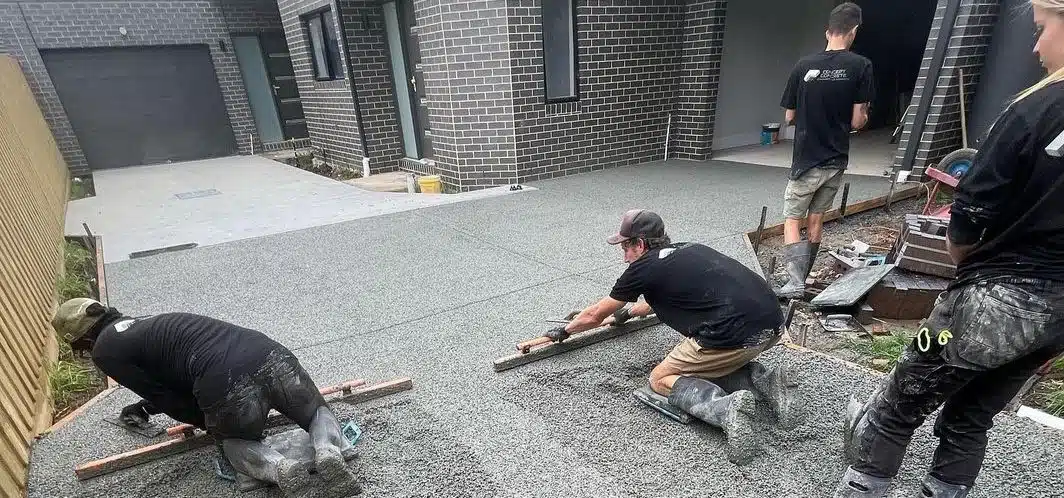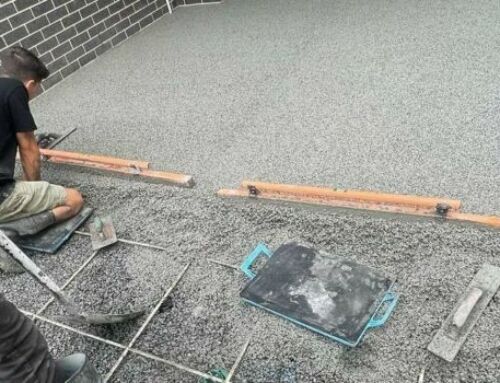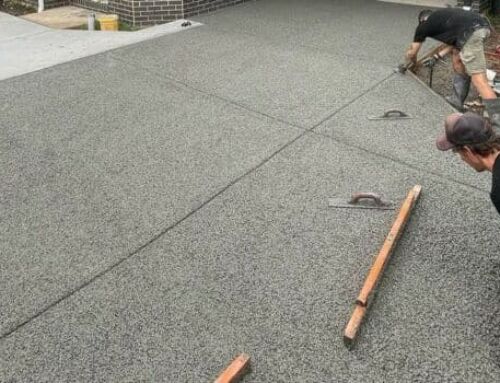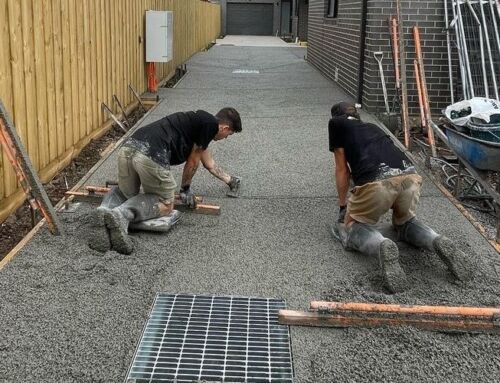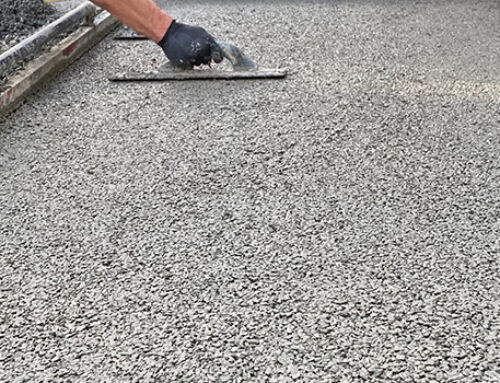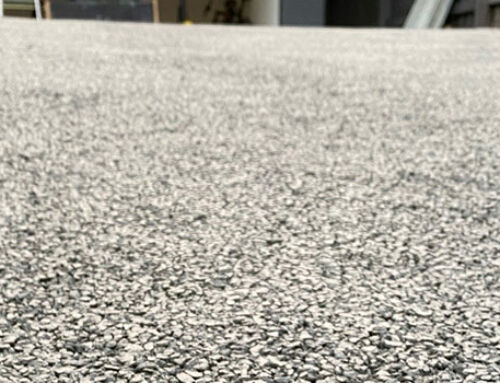While asphalt is one of the most common finishes for driveways, it might not be the wisest choice, especially if drainage is a concern.
If you’re thinking about using asphalt, you’re probably busy planning to upgrade your driveway. There are many other practical driveway ideas, though, that you can explore, too. One such alternative to asphalt is permeable pavers. Continue reading to find out more about how to compare permeable pavers vs. asphalt and which finish will be best for your unique setup.
If you want to learn more about permeable paving, check out our other resources:
1. How Much Does Permeable Paving Cost?
2. How to Choose the Best Permeable Paving Contractor
3. Pros and Cons of Permeable Paving
4. Permeable Paving Vs. Concrete: Choosing the Right Material for Your Surface
A closer look at permeable pavers
Permeable pavers are popular alternatives to traditional concrete and asphalt. They’re quite versatile and can be used in both residential as well as commercial setups (in fact, they are often used in car parks). The material is available as premade pavers but can also be installed by pouring it similarly to concrete as a permeable pavement solution.
Compared to your most common concrete mixtures, permeable pavers are made using larger aggregate. It’s a mixture of cement and resin that can bond and harden like typical concrete but without restricting water from flowing over and through it.
As it doesn’t have the same fine particles that traditional concrete has, it can’t be compacted that tightly. This means that there are air pockets throughout the surface that allow water to flow through. Most of the time, it’s also installed over a layer of coarse aggregate to help water flow away from the surface.
The main advantage of permeable pavers is that they can reduce water flowing into storm drains, helping to protect your property from stormwater and runoff. Sometimes adding a solid concrete surface to, for example, a patio or driveway can lead to drainage issues. In this case, permeable pavers can help. It’s also a better choice for areas with poor drainage and stormwater systems taking strain. The water can be absorbed partly via the surface and the groundwater system, helping to prevent water from pooling.
What to expect from asphalt
Unlike permeable pavers, asphalt needs no real introduction. It’s one of the most popular and economical materials for constructing driveways and made using the remnants of bitumen (or petroleum deposits). To solidify it, a mixture of aggregates is added. To this end, standard asphalt is not permeable, meaning that water will run off the surface rather than absorbing into the material.
While it’s not as durable as concrete, it’s more affordable upfront. That said, keep in mind that it has to be resealed every couple of years. Another drawback is the limited customization options available. You’ll need to stick to its characteristic black-brown color. Also, after it has been rolled and pressed into position, that is the final result that you’ll need to work with.
Permeable pavers vs. asphalt: Which is best?
In short, permeable pavers are great for areas where you have minimal drainage control. They’re also a popular solution in areas that attract a lot of foot traffic as they prevent pooling water that can easily lead to slips and nasty falls.
Asphalt, though, is generally more affordable than pavers. For an asphalt driveway, you can expect to pay between $30 and $40 per square meter. However, it can be more challenging to budget for your project as it’s a byproduct of the oil and petroleum market, which is notorious for price fluctuations.
On the other hand, the average cost of permeable concrete pavers is about five times that and can set you back between $180 and $190 per square meter. That said, both asphalt and permeable paving are more affordable than options like natural stone that costs more than $200 per square meter.
With regards to durability, permeable pavers are more durable, but both can deliver decades of service. What’s more, both can withstand heavy vehicle traffic, making them a great solution for areas like driveways.
All in all, if you’re worried about drainage, it will make more sense to opt for permeable pavers.
Also, if you’re searching for material to use around your pool area, permeable pavers will be the better choice. Not only will it avoid puddles of water from forming, but it can also draw moisture away from the pool’s foundation. After all, who wants to step out onto asphalt that’s been baking in the sun all day after cooling down in the pool?
Clear your drainage worries with the help of Concept Concrete
Paving should be more than just beautiful to look at. Function is also critical. Choose the wrong material, and you increase the slip hazard. This is especially important when you need to pave a surface in a moisture-prone area such as around the pool or your driveway.
In this instance, permeable pavers are one of the best choices. This material has been carefully designed to help prevent rain water from running dangerously into stormwater drains, your own yard, or that of your neighbors.
While permeable pavers are more expensive than alternatives like asphalt, they offer you peace of mind knowing that drainage problems will be minimized. After all, knowing that you’ve done everything possible to reduce the likelihood of slips and falls is something that you can’t put a price on.
However, if drainage isn’t a major concern, go ahead and stick to asphalt — that’s if you don’t mind the lack of customization.
Whichever surface solution you settle on, the skilled Concept Concrete team can help. We offer a wide range of domestic and commercial services that can help you to transform areas, like driveways, into functional, yet beautiful surfaces.
In addition to our concrete expertise, we can also help with landscaping and construction and offer valuable building advice. If you still can’t decide between asphalt or permeable pavers, call us on 1300 366 343 to find out more about your best option or request a free quote online today.

